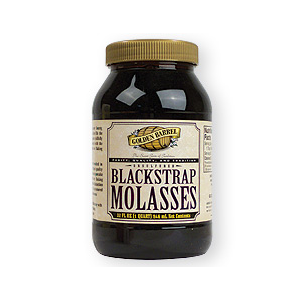 With the constant plague of obesity and diabetes in our society today, healthier alternatives to processed, fatty foods are a necessity. As generation after generation is raised on highly processed and unhealthy foods, obesity and diet related diseases have become the number one cause of death throughout the world. This is both astounding and worrisome.
With the constant plague of obesity and diabetes in our society today, healthier alternatives to processed, fatty foods are a necessity. As generation after generation is raised on highly processed and unhealthy foods, obesity and diet related diseases have become the number one cause of death throughout the world. This is both astounding and worrisome.
What does this have to do with prepping and emergency food plans? Well, as any college nutrition class will tell you, the common table sugar that most products contain and most of us use today provides absolutely no nutritional value to our diet. Table sugar can create blood sugar and insulin instability. Molasses is actually the byproduct (waste) obtained during the processing process of sugar cane into table sugar. Interestingly, this molasses is actually a much healthier and natural sweetening option. Consider including unsulfured molasses in your emergency food supply over common table sugarâhere's five reasons why:
Low Glycemic Index
As we all know, "traditional" sugar (meaning common table sugar) is high in glucose and carbohydrates. Molasses has a low glycemic index, allowing glucose and carbohydrates to be metabolized slowly. This slowed metabolic process demands less insulin production and stabilizes blood sugar. As a result, fewer lipids (fat) are built up in the blood when ingesting molasses over sugar. This means that molasses seriously decreases your risk of becoming diabetic while also satiating your need for sweet.
Good Source of Potassium
Low potassium levels cause muscle weakness and is considered a factor in causing painful and damaging arthritis. High levels of potassium are found in unsulfured molasses. Potassium is also important in the successful functioning of the nervous system and in heart health. Potassium is an essential mineral that many individuals' diets are lacking.
High Iron Content
Many individuals use molasses to holistically overcome or help with cases of anemia. Because molasses contains high levels of iron which are essential in creating red blood cells, many individuals with anemia have found success by using molasses to help treat it. The iron combined with the folate (a natural source of folic acid) and B vitamins also found in molasses create a mixture of natural entities that promote red blood cell production.
High in Vitamin B
Molasses is high in vitamin B complex. These B vitamins are important in helping your body cope with stress. B vitamins support and increase the rate of metabolism, maintain healthy skin, hair, and muscle tone, and enhance immune and nervous system function.
Strong Source of Chromium
This trace mineral is another that is found in higher portions in molasses. Chromium helps your body keep your blood sugar levels stable. This is an extremely important function in general and specifically for those working to manage diabetes. For this reason, molasses may offer a suitable alternative for individuals with blood sugar conditions.
Individuals wishing to make the switch from processed table sugar to molasses may struggle initially with the adjustment. Most of us are so used to the processed sugary sweet taste of table sugar, that the slightly bitter taste of all natural molasses can be a drawback at first. However, once you adjust to the new taste, many prefer the taste of molasses over its artificially processed counterpart. As with any dietary supplement, moderation is key. You do not want to consume molasses endlessly just as you do not want to consume table sugar endlessly or vitamin C endlessly. A common diet would consist of about two to three tablespoons of molasses a day instead of using table sugar. Molasses can be a wonderful and, as we've demonstrated above, significantly healthier alternative to common table sugar for someone's diet. Try making the switch and adding it to your emergency food supply today to reap all the benefits of unsulfured molasses.
This guest post is contributed by Barbara Jolie, who writes for the online classes blog. Barbara Jolie is an avid writer and blogger, interested in all things education. For questions or comments email her at [email protected].























